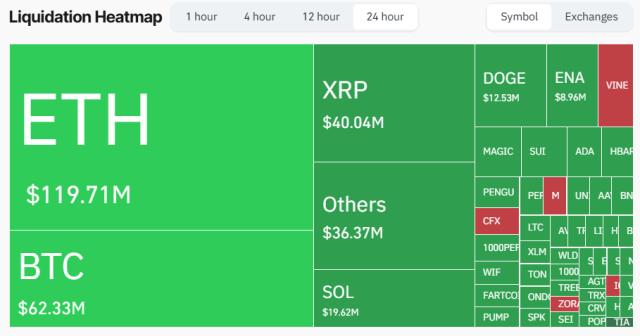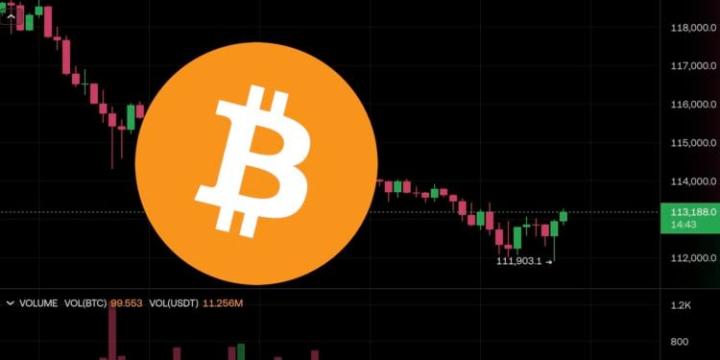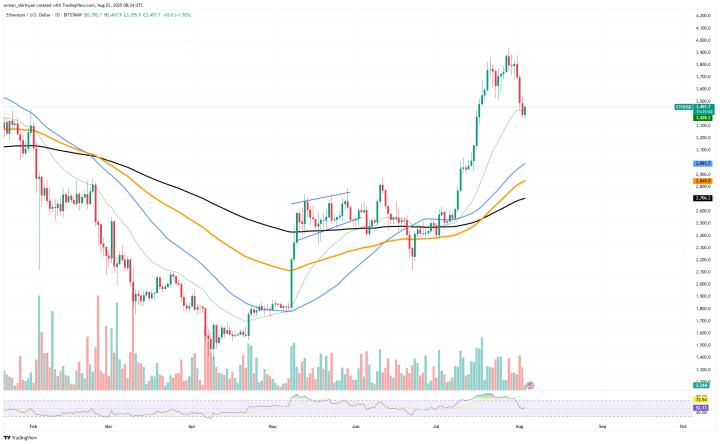Compiled by: Nona
Fear and Greed Index: 62 (Greedy)
Bitcoin Price: $118,673
BTC/ETH Spot ETF Capital Flows (7.30)
BTC Net Inflow: $47.04 M
ETH Net Inflow: $5.79 M
Regulation/Macro
The Bank of Japan maintained its benchmark interest rate at 0.5%, unchanged for the fourth consecutive meeting, in line with market expectations.
US Imposes 50% Tariff on Brazil and 15% Tariff on South Korea
US President Trump announced a 50% tariff on Brazil, effective in 7 days. Additionally, the US will impose a 15% tariff on South Korea.
The White House, in its digital asset report, requests Congress to consider legislation mandating US residents and companies to report overseas digital asset accounts during tax filing. The Trump administration stated that this would help prevent Americans from transferring crypto assets overseas. The policy proposal suggests that this policy change will promote the development and use of digital assets in the US and alleviate concerns that the lack of a reporting mechanism could put the US or US digital asset trading platforms at a disadvantage.
The White House released a digital asset report outlining a national strategy aimed at positioning the US as a global leader in blockchain, cryptocurrency markets, and tokenized finance. The report covered a broad range of digital asset policy areas but provided no substantial update on the government's Bitcoin reserve plan, merely reiterating the language from President Trump's January executive order without listing subsequent steps or implementation timeline. The report, stemming from a presidential executive order signed in January establishing an interagency working group on digital assets and emerging technologies like AI, is a 166-page document led by White House Crypto and AI Affairs Head David Sacks and Executive Director Bo Hines. It integrates opinions from the Treasury Department, Commerce Department, SEC, and CFTC, proposing multiple suggestions for simplifying regulation, supporting innovation, and modernizing oversight.
Project/Company Dynamics
The CoinDCX crypto exchange attack in India originated from an employee, Rahul Agarwal, whose computer was infected with malware by hackers under the pretext of part-time work, subsequently leading to the theft of approximately $44 million in cryptocurrencies. Company Vice President Hardeep Singh filed a report on July 22. Internal investigation revealed Rahul Agarwal received 1.5 million rupees in part-time income but denied involvement. Police have filed a case under IT and BNS provisions, and Rahul Agarwal has been arrested on suspicion of criminal activity.
Cornerstone Research's report indicates that in the first half of 2025, the number of investor-initiated class action lawsuits related to cryptocurrencies and AI is close to the total for 2024. There were 12 AI-related complaints and 6 crypto-related complaints (compared to 7 crypto-related class action lawsuits last year). Of the 6 lawsuits filed, half targeted crypto issuers, and 1 targeted crypto miners. Additionally, most of these complaints were filed by Burwick Law, including claims against LIBRA and Pump.fun.
5 Satoshi-era addresses starting with 1A1z7, 13giE, 12EWR, 1NuqA, and 1497J (possibly belonging to the same entity) transferred 250 BTC to 2 new wallet addresses starting with bc1qn after 15.3 years of dormancy, valued at approximately $29.64 million.
Security company Check Point warns that the malware "JSCEAL", active since March 2024, has been attacking crypto users by impersonating nearly 50 popular crypto apps like Binance, MetaMask, and Kraken, luring users to download trojan programs through ads, potentially affecting over 10 million people globally. The JavaScript-based trojan with anti-detection mechanisms can steal wallet information, account passwords, Telegram data, and browser cookies, primarily spreading through ads on platforms like Facebook.
Canaan Creative announced the adoption of a cryptocurrency holding policy, designating Bitcoin as its primary long-term reserve asset. Unless needed for liquidity management or risk avoidance, Bitcoin accumulated through daily business activities (including self-mining and mining equipment sales) will typically be held long-term. The company may occasionally acquire other cryptocurrencies in daily operations. As of June 30, 2025, the company's Bitcoin reserves reached 1,484 coins.
Depth & Outlook
According to incomplete statistics, dozens of institutions have stated that they will apply for stablecoin licenses. Meanwhile, more local banks, tech companies, and Web3 teams are preparing further for clearing systems, custody mechanisms, and payment interfaces.
"When debt interest payments rise, and fiscal surplus is politically unfeasible," wrote David Beckworth, a former U.S. Treasury economist, "sacrifices must be made. These sacrifices are more debt, more money creation, or both."
Stablecoins have high global payment efficiency, with traditional cross-border payments taking days to settle, while stablecoins can achieve second-level transfers and reduce costs by over 90%. In regions with underdeveloped banking, Tether (USDT) has been deeply cultivating and expanding the use of dollar stablecoins.
How to Make U.S. Stocks Great Again?
As the world's largest securities market, U.S. stocks have rarely disappointed their investors, but there are still too many countries and regions whose investors cannot access such assets and miss out on wealth.








